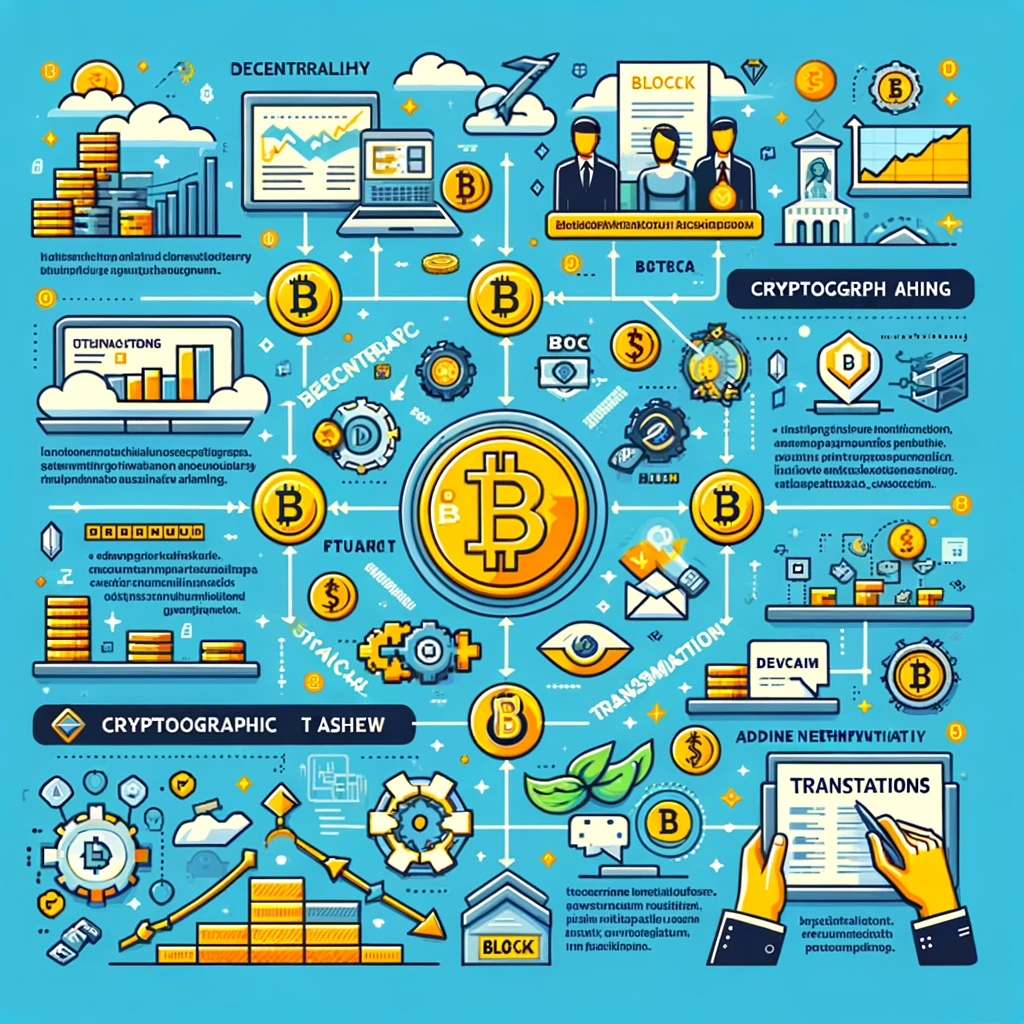In the whirlwind of digital evolution, blockchain technology emerges as a beacon of transformative potential, far surpassing its initial fame as the backbone of Bitcoin. This groundbreaking technology, known for its decentralisation, transparency, and security, is stepping out of the cryptocurrency shadow to revolutionise a myriad of industries. “Unlocking Blockchain: Beyond Bitcoin and into the Future” delves into this journey, exploring the innovative applications of blockchain that promise to redefine the digital and physical worlds.
Understanding Blockchain Technology
At its core, blockchain is a distributed ledger technology that allows data to be stored globally on thousands of servers. This decentralisation means that no single entity controls the entire network, ensuring a level of transparency and security previously unattainable. Each “block” in the chain contains a number of transactions; every time a new transaction occurs, a record of that transaction is added to every participant’s ledger. This not only makes it nearly impossible to alter transaction histories but also removes the need for trusted third-party intermediaries.
Blockchain’s Early Days: The Cryptocurrency Connection
Blockchain’s narrative began with Bitcoin, introduced in 2009 as a peer-to-peer electronic cash system. This innovation demonstrated a practical application for blockchain, offering a way to secure financial transactions without a central authority. The success of Bitcoin paved the way for other cryptocurrencies, expanding the scope of blockchain’s applicability in the financial sector and beyond, sparking interest in its potential to disrupt traditional business models.
Beyond Bitcoin: Diverse Applications of Blockchain
The real intrigue of blockchain lies in its versatility and capacity to instil trust and efficiency in almost any form of transaction. In supply chain management, blockchain provides unparalleled transparency, allowing every participant to trace the journey of products from manufacture to sale. Healthcare systems benefit from blockchain by securely managing patient data, ensuring privacy and integrity. In the real estate sector, blockchain simplifies transactions, reducing fraud and making property history readily accessible. Even the voting process can be revolutionised by blockchain technology, offering a secure and tamper-proof method for recording votes.
Challenges and Considerations in Blockchain Adoption
Despite its potential, the adoption of blockchain is not without hurdles. Scalability remains a significant challenge, as traditional blockchain networks can handle only a limited number of transactions per second. Energy consumption, particularly for networks that rely on proof-of-work consensus mechanisms, also raises environmental concerns. Moreover, the regulatory landscape for blockchain technology is still evolving, with different jurisdictions taking varied stances on its implementation and use.
The Future of Blockchain Technology
As we look towards the horizon, the future of blockchain technology appears both promising and diverse. Innovations such as smart contracts, which automate agreements and transactions based on predefined rules, are already changing the way we engage in digital contracts. The integration of blockchain with other emerging technologies, like the Internet of Things (IoT) and artificial intelligence (AI), opens up new avenues for automation and efficiency. The potential for blockchain to foster a new era of digital trust and innovation is immense, promising to reshape industries in ways we are just beginning to understand.
Conclusion
From its origins in cryptocurrency to its current status as a cornerstone of digital innovation, blockchain technology has embarked on an extraordinary journey. “Unlocking Blockchain: Beyond Bitcoin and into the Future” highlights not only the technology’s versatility and security but also its potential to revolutionise industries, governance, and societal norms. As blockchain continues to evolve, its capacity to foster trust, transparency, and efficiency stands to benefit all facets of our digital and physical lives, heralding a new chapter in the story of technological advancement.
FAQs
1. What is blockchain technology? Blockchain technology is a decentralized digital ledger that records transactions across many computers in such a way that the registered transactions cannot be altered retroactively. This technology is foundational to cryptocurrencies like Bitcoin, but its potential applications extend far beyond.
2. How does blockchain ensure security? Blockchain ensures security through decentralization and cryptographic hashing. Each block contains a unique hash of the previous block, creating a linked chain that is virtually tamper-proof. The decentralized nature means no single entity has control, making it highly resistant to fraud and cyber attacks.
3. Can blockchain be used outside of financial transactions? Absolutely. While blockchain technology underpins cryptocurrencies, its potential applications span various sectors, including supply chain management, healthcare, real estate, and even voting systems, offering a new level of transparency, efficiency, and security.
4. What are smart contracts in blockchain? Smart contracts are self-executing contracts with the terms of the agreement directly written into lines of code. They run on blockchain networks and automatically enforce and execute the terms of a contract when predefined conditions are met, without the need for intermediaries.
5. What challenges does blockchain face? Blockchain technology faces challenges such as scalability, energy consumption, regulatory uncertainty, and the need for widespread adoption. Scalability issues arise as the network grows, while the proof-of-work consensus mechanism, used by some blockchains, is energy-intensive.


This technology, although exciting, is not really well explained and I am not able to understand it completely. :disappointed:
Totally Amazing! I found this post very informative. :star-struck:
I believe that the author has several syntaxic errors in this paragraph, nevertheless, very interesting topic. :nerd:
As much as I like the idea, I still have not found a single use case for blockchain, but maybe i’m just to :face_with_monocle: old to understand it.
blockchain does not go far beyond the realm of currency, is just all over the place, :slightly_smiling_face:
Oh, great! another technology I won’t ever understand… :face_with_rolling_eyes:
:joy: This paragraph is as clear as mud! :joy:
Blockchain is an amazing technology that will make very interesting things for our future, can’t wait to see it evolve! :rainbow: